News
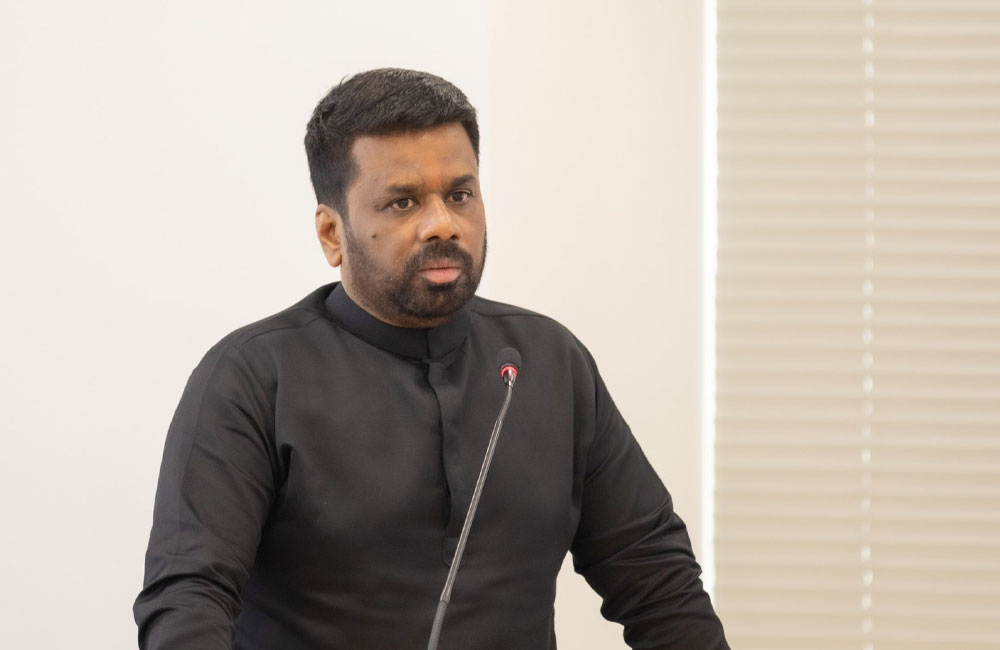
President Anura Speaks at Japan–Sri Lanka Business Forum
President Anura Kumara Dissanayake has invited the Japanese business community to explore emerging economic opportunities in Sri Lanka, while further strengthening bilateral trade and investment relations and encouraging private sector participation.
The President made these remarks yesterday (29) at the Japan-Sri Lanka Business Forum held at the headquarters of the Japan External Trade Organization (JETRO).
The meeting at JETRO brought together around 200 senior members of the Japanese business community. It was organized jointly by JETRO, Japan’s Ministry of Economy, Trade and Industry (METI), the Embassy of Sri Lanka in Japan, the Japan-Sri Lanka Business Cooperation Committee, and the Board of Investment of Sri Lanka (BOI).
During the forum, Dr. Hans Wijayasuriya, Presidential Chief Advisor on Digital Economy, highlighted the Sri Lankan government’s strategic initiatives for the national digitalization process.
Special emphasis was placed on positioning Sri Lanka as a regional hub for data center development, and on opportunities for growth in areas such as digital transformation and artificial intelligence (AI).
The BOI also highlighted key sectors prioritized for Japanese investment, including manufacturing, information and communication technology, renewable energy, and tourism.
The forum underscored Sri Lanka’s readiness to facilitate investments through strong policy support and streamlined processes.
A central networking session was also held between Sri Lankan business representatives and members of the Japanese business community.
Additionally, a discussion took place between President Dissanayake and JETRO Chairman Ishiguro Norihiko, during which the Chairman reaffirmed JETRO’s commitment to serving as a bridge between the business communities of both countries and to promoting continuous, mutually beneficial partnerships with Sri Lanka.





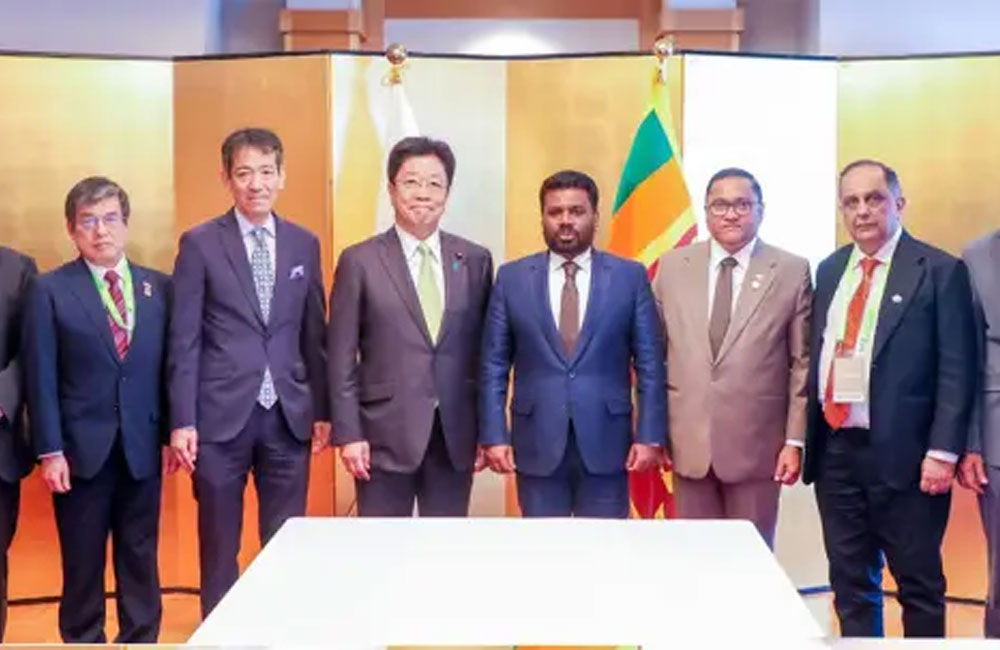
President Anura Kumara meets Japanese FM Katsunobu Katō in Tokyo
President Anura Kumara Dissanayake, who is currently engaged in an official visit to Japan has met Japanese Finance Minister Katsunobu Katō this afternoon (29) at the Imperial Hotel in Tokyo for bilateral discussions.
The discussions between the two factions focused on strengthening trade, investment and economic cooperation between the two countries, the President’s Media Division said.
The President and the Japanese Finance Minister also reviewed ongoing projects and future initiatives in Sri Lanka under Japanese aid/JICA cooperation during the meeting.
Earlier today, President Anura Kumara Dissanayake also held discussions with the Prime Minister of Japan, Ishiba Shigeru in Tokyo.
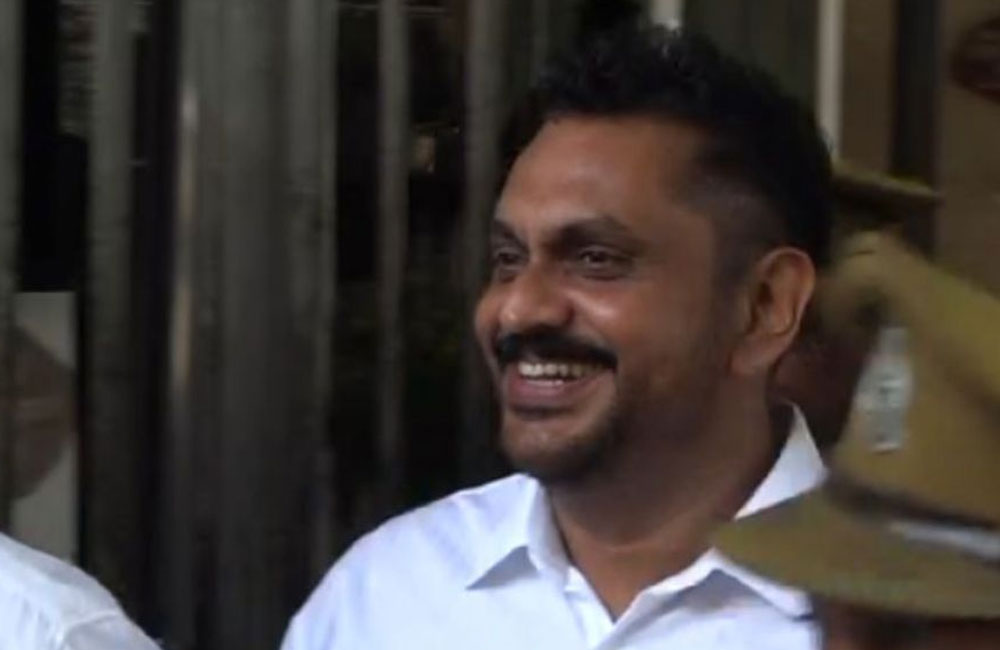
Shashinendra Rajapaksa Further Remanded
Former State Minister Shashinendra Rajapaksa, who was taken into custody by the Bribery Commission over allegations of corruption, has been remanded in custody by the Colombo Magistrate’s Court until October 14.
Magistrate Asanka S. Bodaragama issued this order after considering the submissions made by officials of the Bribery Commission and the suspect’s lawyers.
The magistrate also instructed the prison authorities to submit a full report to the court on the medical treatments provided to the suspect at the prison hospital and other hospitals on the next hearing date.
The case involves allegations that certain government officials, who were responsible for the office handling the properties, exerted undue influence to obtain Rs. 8,850,000 in compensation for damage caused to property, including an unauthorized building located in the Sevanagala and Kiriibbenwewa areas belonging to the Mahaweli Authority, following a protest on May 9, 2022. This act is suspected to constitute “corruption” and “misappropriation of public property” under the law.
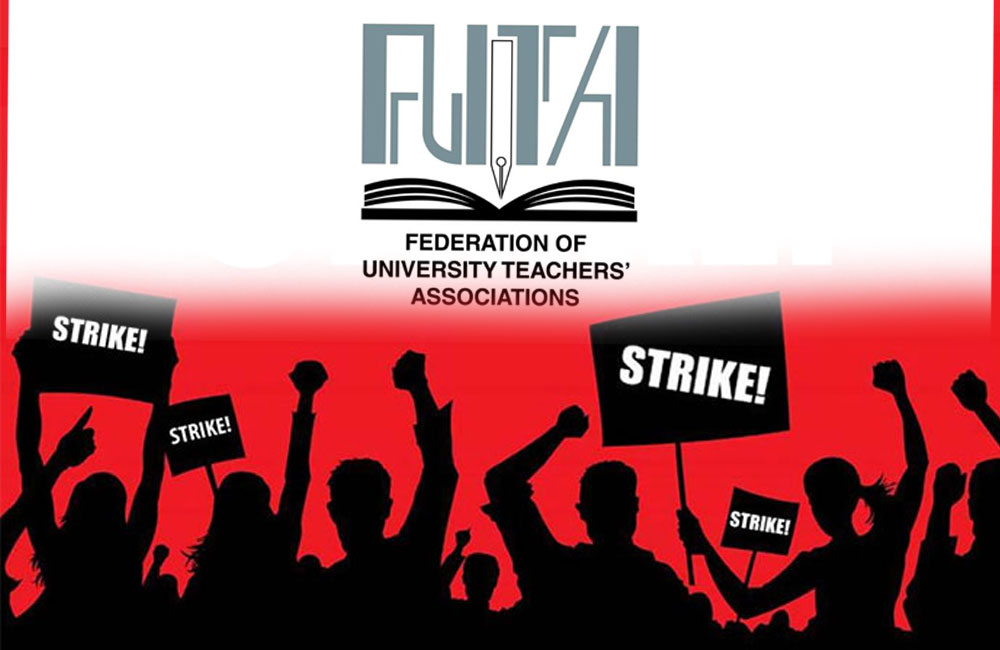
FUTA Announces Nationwide University Strike on Sept. 30
The Federation of University Teachers’ Associations (FUTA) has declared that it will launch a strike tomorrow (30), citing the government’s failure to address persistent problems in the higher education sector.
FUTA Secretary, Senior Lecturer Charudath Ilangasinghe, announced the decision today (29) at a press briefing, stressing that the authorities have not taken adequate steps to resolve long-standing concerns raised by university academics.
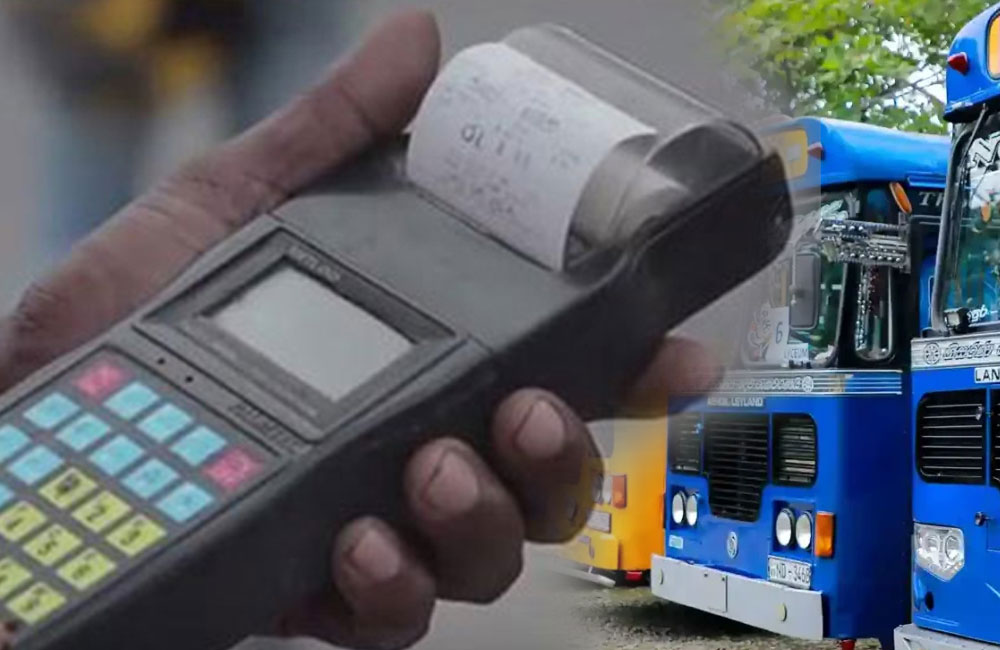
Bus Tickets Made Mandatory on Western Province Buses from Tomorrow
The Western Province Road Passenger Transport Authority has announced that, effective tomorrow (01), passengers traveling without tickets on buses operating within the province will be fined.
Operations Manager of the Authority, Jeevinda Keerthirathna, stated that conductors who fail to issue tickets to passengers will also face penalties. He emphasized that, from tomorrow onwards, it will be mandatory for all passengers traveling on Western Province buses to carry a valid ticket.
Meanwhile, Chairman of the Authority, Gamini Jasinghe, confirmed that the issuance of tickets to passengers on all public transport buses in the Western Province will become compulsory from tomorrow (01).
Accordingly, both the passenger’s responsibility to obtain a ticket and the conductor’s duty to issue one will be strictly enforced.
Mr. Jasinghe further explained: “From the moment a passenger boards, it is mandatory for the conductor to issue a ticket containing details such as the bus number, journey start and endpoint, serial number, and fare. Likewise, the passenger is responsible for obtaining a ticket before starting the journey and keeping it until the destination.
The Authority has decided that, from October 01, ticket issuance and possession will be compulsory. In any instance where a conductor fails to issue a ticket, legal action will be taken against him. Similarly, if a passenger does not obtain a ticket, legal measures will also apply. In such cases, the passenger will be fined Rs. 100 in addition to being charged double the fare for the journey.”

Casino Industry Faces Shake-Up: City of Dreams Prepares for New Taxes
The government’s new tax and regulatory changes are expected to affect Sri Lanka’s gaming industry, and Cinnamon Life’s City of Dreams casino says it is ready to adjust.
Speaking at a World Tourism Day event, City of Dreams General Manager Michael Habashi said the casino will need to adapt to the higher taxes and fees. The betting and gaming levy will increase from 15% to 18%, while the entry fee for Sri Lankan players will double from US$50 to US$100. Foreign visitors will still be allowed free entry.
These measures are aimed at boosting government revenue and strengthening regulation. The Treasury has already asked the Legal Draftsman’s Department to prepare the necessary amendments to the Betting and Gaming Levy Act, which will be presented to Parliament soon.
Habashi noted that although the changes will have an impact, City of Dreams is equipped with some of the most advanced gaming technology in the country. He also said that the resort has been attracting more Chinese and Indian tourists, and hopes to draw more visitors from West Asia.
City of Dreams Colombo is part of Melco Resorts and Entertainment, which also operates in Macau, Cyprus, and Milan. Habashi added that the resort encourages travellers to explore other parts of Sri Lanka during their stay, including excursions and shopping for gems and jewellery.

Three Sri Lankan Crime Suspects Arrested in India
Three Sri Lankans linked to criminal activities in Sri Lanka have been arrested by the Central Crime Branch in Bangalore, India.
The arrested suspects have been identified as Iresh Hasanka, Sugath Samindu, and Dilip Harshana, according to Indian media reports.
It is reported that the three suspects were involved in crimes in Sri Lanka and had illegally entered India last year.

Sri Lankan Students to Receive Free Access to Google’s Gemini AI Plus
Google to Offer Free Gemini Advanced Features for Sri Lankan Students
Sri Lankan students are set to receive free access to Google’s advanced AI tools, including Gemini’s premium features, under a new student package announced today (29).
Deputy Minister of Digital Economy, Eranga Weeraratne, revealed the initiative while addressing the “Future of AI Begins Today” conference this morning. He noted that the breakthrough comes after months of discussions between his ministry and Google.
“I’m thrilled to share that Google has agreed to extend its student offer to Sri Lanka, providing Gemini’s advanced features and other valuable benefits completely free of charge. This is a real game-changer,” the Deputy Minister said.
The program aims to equip students nationwide with free access to cutting-edge AI platforms, cloud services, and educational resources, ensuring they are well-prepared for the future digital economy.

Two Suspicious Dead Bodies Found in Colombo
Two suspicious dead bodies have been found in two areas of Colombo.
Police said that one body was discovered in the Grandpass Police Division and the other in the Dehiwala Police Division.
One body was found yesterday (29) evening in a canal near Ingurukade Junction, Grandpass. Police stated that the identity of the deceased has not yet been confirmed, but the body is believed to be of a man aged between 35 and 40 years. He was about 5 feet 4 inches tall and dressed in black shorts and a black T-shirt.The body has been placed at the Colombo National Hospital morgue, while further investigations are being conducted by Grandpass Police.
The other body was found last night inside a house on Siriwardhana Road, Dehiwala.
The deceased has been identified as a 23-year-old resident of Dehiwala.His body has been placed at the Kalubowila Hospital morgue for a post-mortem examination, while Dehiwala Police are carrying out further investigations.
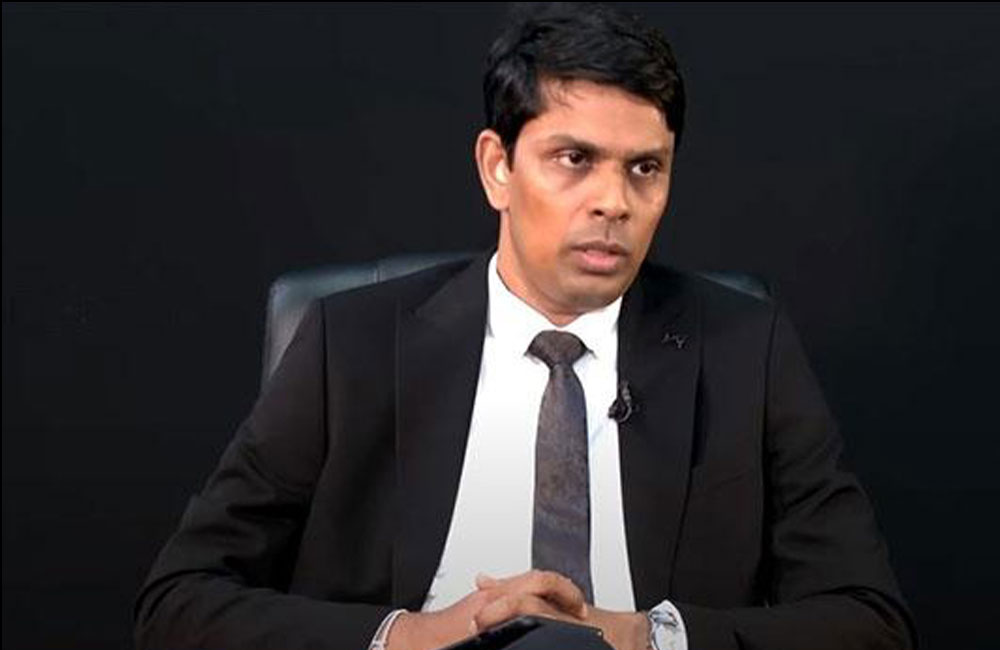
MP Ramanathan Archchuna Released on Bail
Jaffna District MP Dr. Ramanathan Archchuna, who was arrested earlier today (29), has been granted bail.
The Colombo Fort Magistrate released him on two surety bails of Rs. 1 million each.
MP Archchuna was taken into custody this morning when he went to the Fort Police Station to give a statement.
The arrest is connected to an investigation into allegations that he obstructed police duty during a recent Satyagraha protest in Colombo, where he was reportedly seen arguing with a police officer.

Temporary Driver’s licences now issued from Nugegoda Medical Institute
The Department of Motor Traffic has announced that, with effect from today (30), the issuance of temporary driver’s licences during the renewal process will be carried out by the National Transport Medical Institute in Nugegoda.
The initiative will be launched as a pilot project starting today.
According to the Department, if no amendments are necessary to the existing driver’s licence during renewal, applicants will be able to obtain their temporary licence directly from the Nugegoda Transport Medical Institute.
It was further confirmed that individuals applying for temporary licences will no longer be required to visit the Werahera Motor Traffic Office.
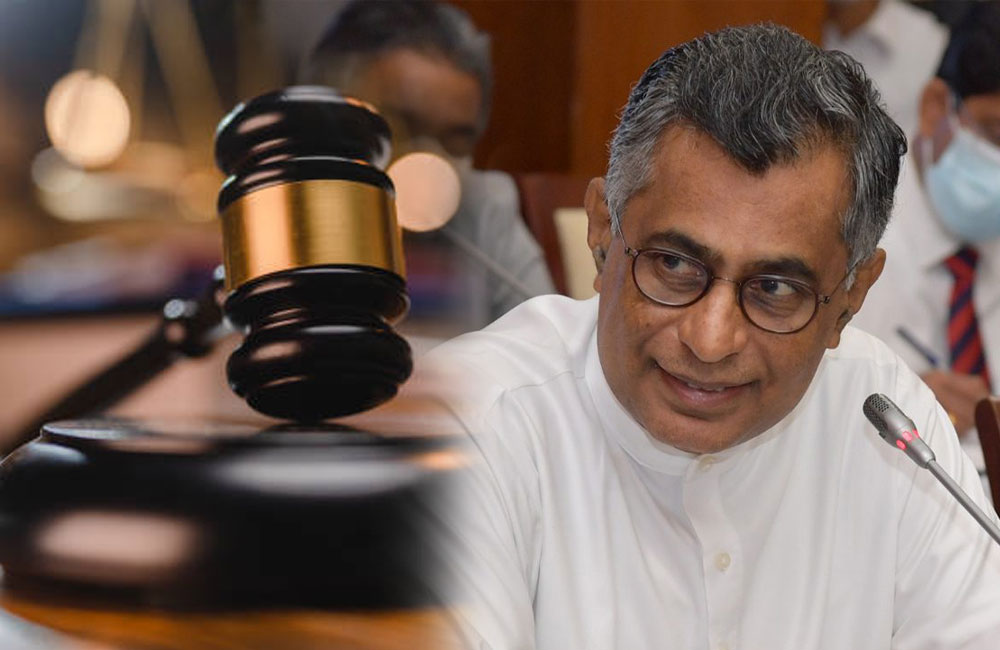
Hearing Date Set for Ranawaka’s Hit-and-Run Case
Court of Appeal Fixes Hearing for Former Minister Ranawaka’s Writ Petition
The Court of Appeal has scheduled the hearing of former Minister Patali Champika Ranawaka’s writ petition, which seeks to quash charges filed against him in connection with a 2016 hit-and-run incident, for November 24.
The petition was called today (29) before Court of Appeal Justice Frank Gunawardena, according to an Ada Derana report. Attorney Amarasiri Panditharatne, representing Ranawaka, requested the court to set a date for the hearing, which the judge approved.
The charges were originally filed by the Attorney General at the Colombo High Court during former President Gotabaya Rajapaksa’s tenure. Ranawaka faces allegations of causing a motor accident through reckless driving on February 28, 2016, in Rajagiriya.
Ranawaka contends that the indictment was filed in violation of the law. Although his lawyers raised preliminary objections seeking dismissal, the Colombo High Court rejected these objections and ordered the case to proceed.
Subsequently, Ranawaka approached the Court of Appeal, requesting that the High Court’s decision be overturned on legal grounds.
Page 86 of 663